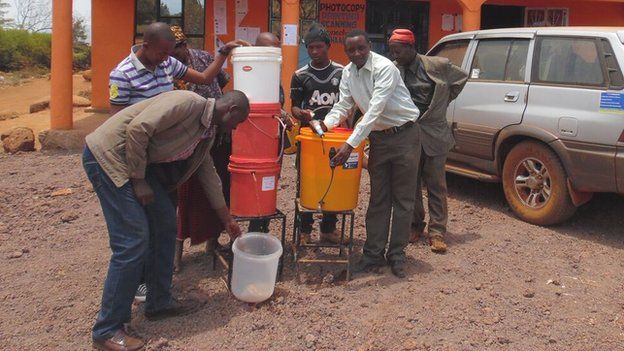A water filter which absorbs anything from copper and fluoride to bacteria, viruses and pesticides has won a prestigious African innovation prize.
Its inventor, Tanzanian chemical engineer Askwar Hilonga, uses nanotechnology and sand to clean water.
He told the BBC his invention should help the 70% of households in Tanzania that do not have clean drinking water.
The prize, worth £25,000 ($38,348), was the first of its kind from the UK's Royal Academy of Engineering.
Head Judge Malcolm Brinded said, "His innovation could change the lives of many Africans, and people all over the world."



The sand-based water filter that cleans contaminated drinking water using nanotechnology has already been trademarked.
"I put water through sand to trap debris and bacteria," Mr Hilonga told the BBC's Newsday programme about the filter.
"But sand cannot remove contaminants like fluoride and other heavy metals so I put them through nano materials to remove chemical contaminants."

He said that before one filter costs $130 but, after winning the £25,000, he will buy materials in bulk and the cost will reduce.
"For people who cannot afford water filters, we have established water stations where people come and buy water at a very very low, affordable price," he added.
Mr Hilonga explains on his YouTube video from 2014 that other resins can remove up to 97% of micro-organisms but his target was to produce nano-filter "that can 99.999% of micro organisms, bacteria and viruses".
His family regularly suffered from water-borne diseases growing up in rural Tanzania, so when he graduated from his PhD in nanotechnology in South Korea he started looking at nano materials that would be suitable for water purification, he told Technology4Change.
The Royal Academy of Engineering aims to help sub-Saharan African engineers to develop solutions to African challenges into businesses.
Mr Hilonga and the three runners-up, who received £10,000 each, have already spent six months developing a business plan.





0 Comments